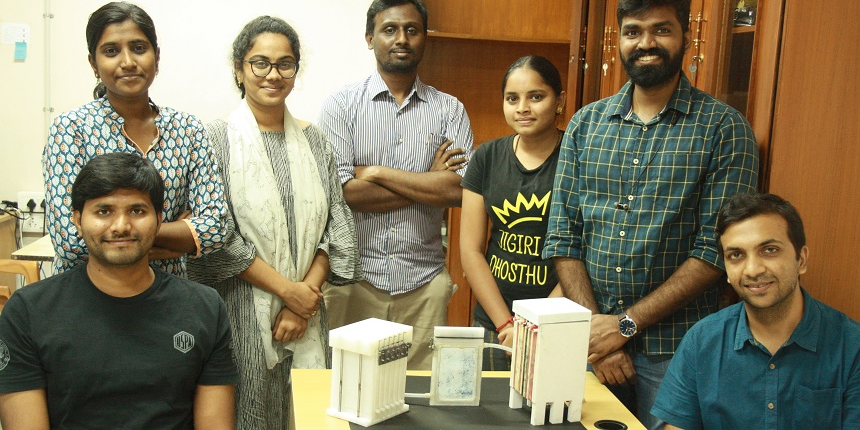IIT Madras researchers develop easily available, affordable batteries for electric vehicles
Vagisha Kaushik | May 30, 2022 | 04:35 PM IST | 2 mins read
IITM chemical engineering researchers are developing zinc-air batteries for EVs which are economical, and have longer shelf life than lithium-ion batteries.

NEW DELHI: The Indian Institute of Technology (IIT) Madras researchers are developing mechanically-rechargeable zinc-air batteries as an alternative to Lithium-ion batteries which are used in electric vehicles.These batteries are economical compared with existing lithium-ion batteries and have a longer shelf life. Zinc-air batteries can be used in two-wheeler and three-wheeler EVs.
IIT Madras researchers, who have filed for patents for this new battery technology, are collaborating with major industries to develop these zinc-air batteries.
Also Read | IIT Kanpur develops haptic smart watch for the blind, visually impaired
The Researchers are mooting separate ‘Zinc Recharge Stations’, similar to petrol stations. The EVs Users utilizing zinc-air batteries can reach out to these bunks whenever the batteries are drained, similar to the current model of conventional vehicles refueling at petrol stations.
This technology is based on ‘Battery Swapping’ in which Vehicle Users can swap used ‘zinc cassettes’ of the battery with fully-charged ‘zinc cassettes’ at these ‘Zinc recharge stations.’
Also Read | IIT Bombay Semicon India 2022 showcases one time programmable memory
Advantages of zinc-air batteries include:
- Zinc is widely available in India and would reduce the import of lithium-ion batteries
- Zinc is cheaper as compared to lithium-ion batteries. While lithium-ion batteries cost $200 to $250 a KWhr, zinc- air batteries cost around $150 KWhr. With wider usage, the price is expected to come below $100 KWhr
- Zinc-air batteries are also water-based and have a longer shelf life.
- Zinc-air batteries have good turnaround efficiency.
Aravind Kumar Chandiran, Assistant Professor, Department of Chemical Engineering, IIT Madras, and his research group have been working towards developing a cost-effective alternative to Lithium-ion batteries. They focused on Zinc-Air Batteries as Zinc is a widely-available resource.
Also Read | IIT Roorkee partners with five institutes on academics and research
Highlighting the key focus of their research, Dr. Aravind Kumar Chandiran, Assistant Professor, Department of Chemical Engineering, IIT Madras, said, “Our Research Group is developing a futuristic model for zinc-air batteries for EVs. Through this research, we are also identifying shortcomings in existing technology and finding ways to address them. The Research team has currently developed zinc-air cells and is working towards developing zinc-air packs for EVs.”
Gunjan Kapadia, another Research Scholar working on the zinc-air batteries and lithium-ion batteries operational safety at IT Madras, said, "The indigenously developed zinc-air batteries, specifically in an Indian context, are extremely safe as it has aqueous electrolyte and it doesn't catch fire even in worst case scenario of EVs accident."
Follow us for the latest education news on colleges and universities, admission, courses, exams, research, education policies, study abroad and more..
To get in touch, write to us at news@careers360.com.